Lyor Cohen Is a Business, Man
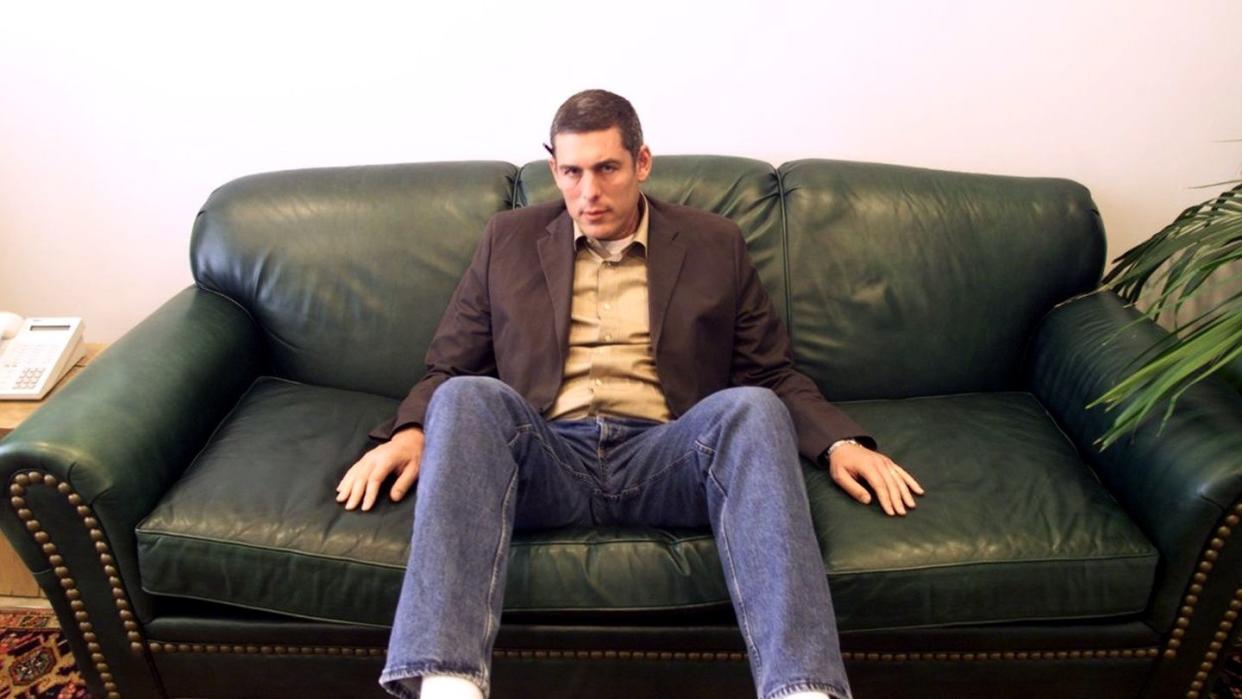
Moving to New York City in the early '80s was a crazy idea. The Bronx was burning, the AIDS epidemic was just beginning, and unemployment was at an all-time high. But Lyor Cohen, now 63, saw opportunity. Working as a road manager for Russell Simmons's Rush Productions, Cohen eventually went on to manage the label, become the head of Def Jam, and sign a treasure trove of big-name artists to their major debuts.
With hip-hop celebrating its 50th anniversary this year, it only make sense to call up Cohen, a guy who worked behind the scenes all of these years. After all, Cohen changed history when he brokered the deal to strap Adidas on Run-DMC. As JAY-Z once rapped, "I'm not a businessman, I'm a business, man." Well, Cohen taught him about that business. He also gave modern rappers such as Migos and Young Thug their first big break, continuing a legendary streak of signings that includes, but certainly isn't limited to: Public Enemy, Slick Rick, DJ Jazzy Jeff & the Fresh Prince, Eric B. & Rakim, De La Soul, A Tribe Called Quest, and Ludacris.
So, what does Cohen think about the big anniversary? "The Golden Age is a bunch of bullshit." he says. Even for a guy who was there for it all, he's not romantic about the past. Cohen is all business, as he's always been—constantly chugging forward. "As long as the kids feel moved, that's the Golden Age," he says. "The moment you start thinking or talking about a Golden Age, you're putting a clock on yourself."
Cohen isn't wrong, but that doesn't mean he's short on stories. Cohen tells me about a Public Enemy show at the Ritz that an 18-year-old Mike Tyson attended. "The floorboards of the theater felt like they were going to give out at any moment," he says with a grin. He recalls attending Live Aid in Philadelphia, where he'd never seen so many people. And he still mourns the loss of Jam Master Jay, his mentor—and the one person who really showed him the ropes of the music business.
Though hip-hop's 50th anniversary is certainly a major milestone, the genre has evolved so much over the past five decades that even some of today's hitmakers are clueless about those who started the party. Really, hip-hop is 50 years young, evident by the fact that DJ Kool Herc—one of the genre's founding fathers—still walks around in the Bronx telling his stories. And yet, when Cohen signed Young Thug? The modern-day crooner had never even heard of Run-DMC. "That was a wake-up call," he jokes.
Below, Cohen shares more stories from his time in New York in the early '80s, the secret key to signing an artist, and why his current gig as YouTube's Global Head of Music is the perfect way to chronicle hip-hop's history.
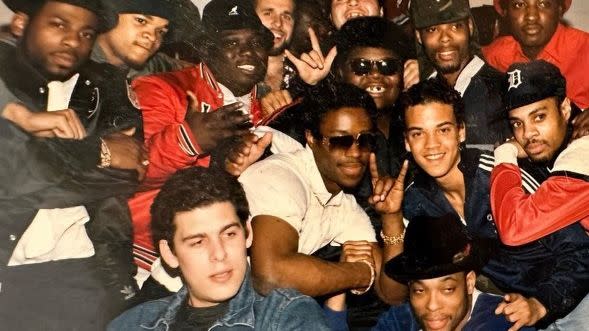
ESQUIRE: What do you remember about New York City in the '80s?
LYOR COHEN: It was do or die. It was survival. It was pre-AIDS, pre-crack. It was just after the almost-bankruptcy of New York City, so the city was tough. There was also affordable housing, particularly in the East Village, Alphabet City, SoHo area. So, there was a collision. It was a moment in time where there was a movement from exclusivity to inclusivity. The exclusivity of the Velvet Rope of Studio 54, the inclusivity of the Disco Fever, The Encore, The Roxy, Danceteria, where there was many more inclusive faces and people from all different walks of life. And I really had no context. If I had an idea, I would've taken many more photos and held onto the moment.
I walked on Jean-Michel Basquiat's paintings. Had I had any idea of what I actually was going through, I would've bought one for under $1,000 and sold or kept it. That would've been worth over $100 million. Same thing with Keith Haring. I felt like I was this kid that really didn't know anything—that was faking it 'til I was making it. I had to fake it real, real good and provide value. I couldn't rap or perform. I wasn't a marketing genius or promotion person, and I was entrusted to do management and move things forward. I was living on a welfare hotel floor of a friend of mine that was going to Columbia University.
When you were out searching for artists, was there something specific you were looking for? Where, if you saw it while they were performing, you thought, Yeah. He's got it.
There was a period of time where—because I was Run-DMC's manager—acts were starting to break and they were coming to me. With Rush, we were really focused and determined. We had several really important acts and there was really very loose infrastructure for management at that time. The professional management was primarily with rock and roll. None of the emerging rap acts really had proper representation. So, they came to us.
When I transitioned to the record company, one of the most important things was to go to their home. I never would sign an act unless I went to where they lived, where they put their head down. I was always looking for clues—records, pictures of mothers, pictures of fathers. I was like that guy from Raiders of the Lost Ark. I was trying to find the truth. And I wasn't a sonic person, I was a person person. If someone had a natural smile, that was supported early on by their mother, that had a musical inspiration from a grandparent—that was a winning combination to me.
Do you remember the first time you met JAY-Z?
I met JAY-Z with Big Daddy Kane in the '80s. What struck me about Jay was his curiosity, and his early recognition of his storytelling. His audience needed him to be the travel agent to their experiences. He had the opportunity to go beyond Marcy and New York and experience all sorts of things that he could communicate back to them.
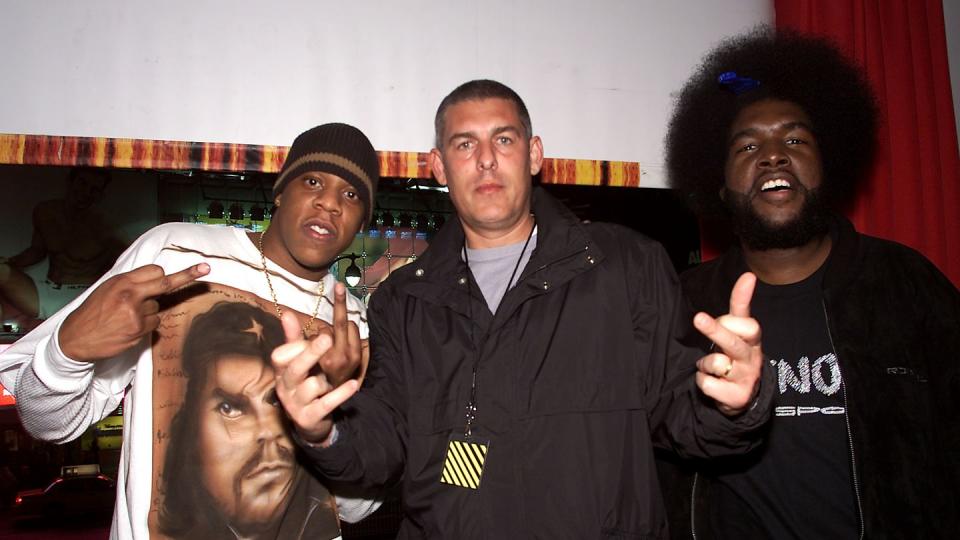
Being a white Jewish guy, like myself, did you feel like it was tough to break into that space and prove that you respected the culture?
I never had a funky moment, where I was the Jewish person... except for a couple of times. They used to say certain things like they're lucky to have a Jewish manager, because I'm good with money. And I would correct them, because I would tell them that I believe the essence of being Jewish is education. People make certain remarks or tropes of people because of their lack of education. I was there to fill in the blank. I didn't exacerbate that—I would check it. For example, they used to call me "Lansky." They did out of pure affection, that I'm a gangster and they love gangsters. I would always stop them, even though it rarely worked.
The only time that I ever felt uncomfortable—and it wasn't to me, specifically—was with Professor Griff's comments around Henry Ford's book. After that, many of the Jewish people in the music industry would ask why I managed Public Enemy. I said that I wanted to show them my values, to have the ability to give insight to what it means to be a Jewish person. I'm so glad that I did.
You mentioned having to feel like you had to fake it until you made it in those early days. Was there a moment when you finally stepped back and realized that you had made it?
No. Never. This is a journey—a life's journey of constantly doing good work—a reinvention of curiosity and joy. I feel sorry for a lot of the new entrants to this business, where fame and money are simply their only scorecard. I believe the pursuit of greatness doesn't have a period. It may have a comma, but it doesn't have a period. I never felt that moment when I could relax and reflect on, Oh shit, I made it, because I'm still contributing, still want to contribute, and still feel like there's no reason to put a period on it.
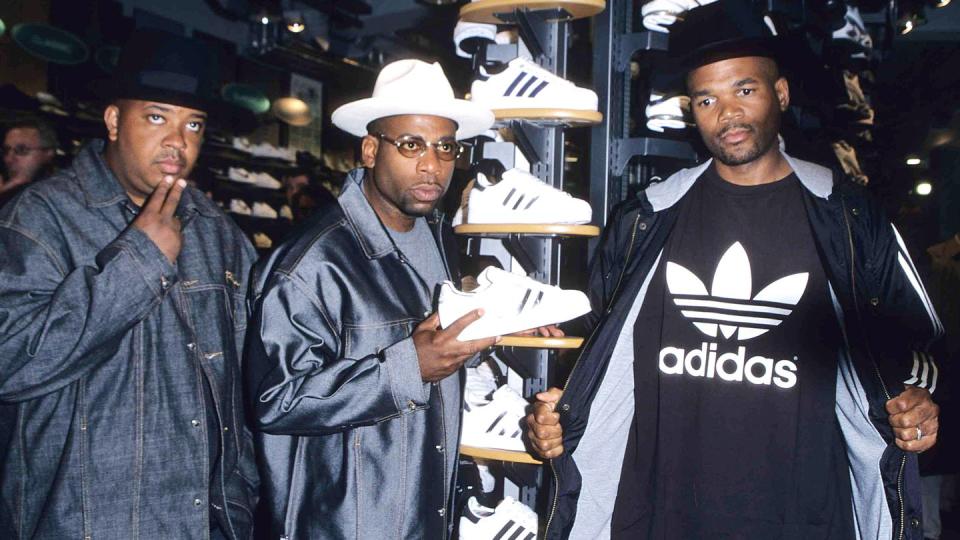
Looking back, is there a moment you're most proud of?
I'm most proud of surviving cold. When none of your artists are successful, and no records are working. When you sign acts that don't sell and you don't know what to do with yourself. There's a lot of people that could get hot, believe their own shit, and the moment they get cold they don't know how to survive. Because if you put 100 people against a wall and you give them a lot of success and hotness, they will all basically behave in a certain pattern. You put the same 100 people and you make them freezing cold and desperate, there's a much bigger pattern of behavior. I'm not making the same mistakes numerous times. I'm trying to constantly push, reevaluate, and grow.
What was your lowest point?
I signed one bad act after another and was almost out. Thank God Redman came into my life in time for some action. There was a moment when I thought that I was going to retire. At that moment, Puffy was running shit. It was all technicolor—and Def Jam was created in black and white and shades of gray. None of us understood this huge, aspirational, technicolor part of rap music. I took a black and white Polaroid of DMX. I kept it in my breast pocket until The LOX did a technicolor video and I said, Enough is enough. I swore that there was still great interest in black and white and shades of gray, and the understanding of what it meant to be Black in America. What the trials and tribulations and opportunities and dreams were, that may not have been in technicolor.
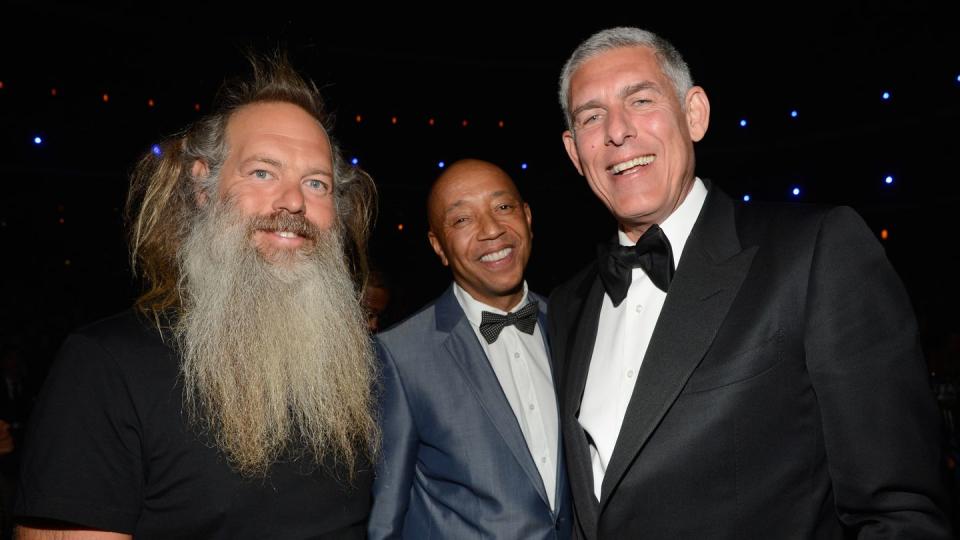
Tell me more about YouTube's FIFTY DEEP campaign.
YouTube serves as the historical memory bank for rap music, because of the depth of the catalog that we have and the visual outtakes, the remixes, the live performances, and the interviews. It's the center of getting information about the historical value of rap music and hip-hop. We don't need a Valentine's, or anniversary, or Mama's Day, or Daddy's Day to celebrate rap. We've been celebrating rap music—and the fact that it is the largest cultural force—on YouTube, and we celebrate it every day. It just so happens that there's an arbitrary 50th anniversary, so we need to package things up. People tend to need that, to defibrillate and create marketing and promotion moments. But we market and promote and value the contribution of this incredible artform every single day.
Hip-hop is still so young. Do you have an idea of where the genre might be headed in the next 50 years?
I have no clue. I've never weather-vaned this. I remember pissing off the head of Polygram Legal on the way to Seville, Spain for the International Convention of Polygram. He sat next to me and says, "Lyor, so what's after rap?" I said, "I don't know." And he said, "What are we paying you millions of dollars a year for, if you don't know what the future lies?" I said, "I hope you didn't pay me money to be a fortune-teller. The reason why you paid me this money was that I've created a safe and loving home for an artist that, right now, is in their garage. They will take us to a different place and define the future." Needless to say, he was quiet.
You Might Also Like


